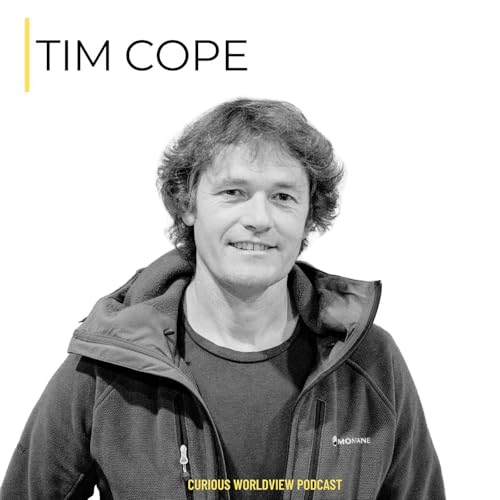
Curious Worldview
Impossible d'ajouter des articles
Désolé, nous ne sommes pas en mesure d'ajouter l'article car votre panier est déjà plein.
Veuillez réessayer plus tard
Veuillez réessayer plus tard
Échec de l’élimination de la liste d'envies.
Veuillez réessayer plus tard
Impossible de suivre le podcast
Impossible de ne plus suivre le podcast
-
Lu par :
-
De :
-
Ryan Faulkner
À propos de ce contenu audio
Interviews featuring a mix of investigative journalists, affecting writers, economics, geopolitics, explorers and fascinating life stories.
Whether it's the supply chain of semi-conductors, a 25 year cold-war CIA veteran, negotiation with Chris Voss, Warden of Sweden's biggest prison, Lawrence Krauss and the universe, Cricket with the GOAT Gideon Haigh, Taiwan, China, the great adventurers and explorers the list goes on...
Check out the 'Starter Packs' I put together for the best place to start with the pod... economics, Subscribe to the Substack: https://curiousworldviewpod.substack.com/subscribe
© 2026 Curious Worldview
Vous êtes membre Amazon Prime ?
Bénéficiez automatiquement de 2 livres audio offerts.Bonne écoute !
Épisodes
-
 1 h et 37 min
1 h et 37 minImpossible d'ajouter des articles
Désolé, nous ne sommes pas en mesure d'ajouter l'article car votre panier est déjà plein.Veuillez réessayer plus tardVeuillez réessayer plus tardÉchec de l’élimination de la liste d'envies.
Veuillez réessayer plus tardImpossible de suivre le podcast
Impossible de ne plus suivre le podcast
-
 1 h et 18 min
1 h et 18 minImpossible d'ajouter des articles
Désolé, nous ne sommes pas en mesure d'ajouter l'article car votre panier est déjà plein.Veuillez réessayer plus tardVeuillez réessayer plus tardÉchec de l’élimination de la liste d'envies.
Veuillez réessayer plus tardImpossible de suivre le podcast
Impossible de ne plus suivre le podcast
-
 2 h et 59 min
2 h et 59 minImpossible d'ajouter des articles
Désolé, nous ne sommes pas en mesure d'ajouter l'article car votre panier est déjà plein.Veuillez réessayer plus tardVeuillez réessayer plus tardÉchec de l’élimination de la liste d'envies.
Veuillez réessayer plus tardImpossible de suivre le podcast
Impossible de ne plus suivre le podcast
Aucun commentaire pour le moment









